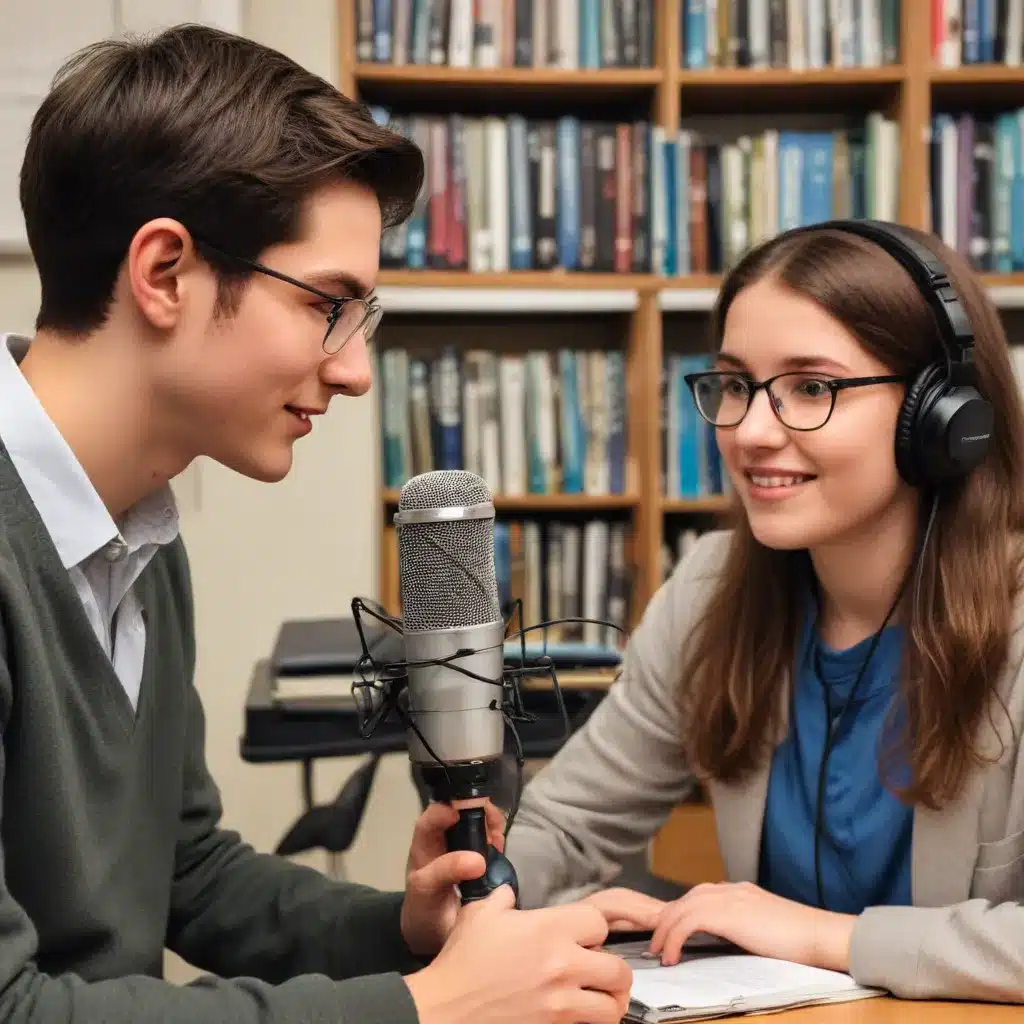
Empowering Student Voices in Science Communication
In today’s rapidly evolving world, the need for effective science communication has never been more crucial. As the next generation of scientific leaders, students play a vital role in bridging the gap between the scientific community and the public. One innovative way that Stanley Park High School is empowering its students to engage in science communication is through the creation of student-led science podcasts and vlogs.
The Rise of Student-Led Science Podcasts and Vlogs
Recognizing the power of digital media, the science department at Stanley Park High School has spearheaded an initiative that encourages students to develop their own science-focused podcasts and vlogs. These platforms provide a unique opportunity for students to share their scientific knowledge, insights, and passions with a wider audience.
“Navigating Nano,” a podcast created by students at the Joint School of Nanoscience and Nanoengineering (JSNN), is a shining example of the impact these student-led initiatives can have. Hosted by a team of doctoral students, the podcast “lets listeners in on the types of challenges leading scientists, engineers, and others working in the fast-growing fields of nanoscience and nanotechnology are solving – and the ones they personally face.” By inviting experts from around the world to share their stories and experiences, the podcast not only educates the public but also empowers the student hosts to develop their own communication skills.
Similarly, the University of Washington’s “Engage” program, a graduate-student-created and led training program, has been found to have a positive impact on the communication abilities of its participants. Through a pre-course and post-course study, researchers discovered that “Engage trainees had an increase in their ability to employ effective communication techniques” when delivering presentations to public audiences.
The Benefits of Student-Led Science Communication
Encouraging students to create and host their own science-focused podcasts and vlogs offers a multitude of benefits, both for the students themselves and for the wider community.
-
Developing Communication Skills: By taking on the roles of host, interviewer, and content creator, students hone their ability to effectively communicate complex scientific ideas to diverse audiences. This skill set is invaluable not only for their academic pursuits but also for their future careers.
-
Fostering Engagement and Interest: Hearing directly from their peers can spark a sense of curiosity and engagement in science among fellow students and the broader community. These platforms allow young people to see themselves reflected in the world of science, inspiring them to explore their own scientific interests.
-
Bridging the Gap between Science and Society: Student-led science communication initiatives help to demystify scientific concepts and make them more accessible to the general public. By sharing their passion and expertise, students can play a crucial role in increasing scientific literacy and fostering a more informed and engaged citizenry.
-
Promoting Interdisciplinary Collaboration: The creation of science podcasts and vlogs often requires students to collaborate with peers from diverse academic backgrounds, such as journalism, media studies, or even business. This interdisciplinary approach fosters valuable cross-pollination of ideas and skills, preparing students for the realities of modern scientific research and communication.
-
Building Professional Experience: Participating in these student-led initiatives provides valuable real-world experience in content creation, project management, and networking. These skills can give students a competitive edge in the job market, whether they pursue careers in science, science communication, or beyond.
Cultivating a Culture of Student-Led Science Communication at Stanley Park High School
To further support and expand the opportunities for student-led science communication at Stanley Park High School, the school has implemented several key initiatives:
-
Dedicated Curricular Offerings: The school has incorporated science communication into its curriculum, offering elective courses and workshops that guide students through the process of developing and producing their own science-focused podcasts and vlogs.
-
Mentorship and Guidance: Faculty members with expertise in science communication, journalism, and media production serve as mentors, providing students with guidance, feedback, and access to necessary resources and equipment.
-
Collaborative Partnerships: Stanley Park High School has forged partnerships with local universities, research institutions, and science communication organizations to facilitate guest speaker sessions, internship opportunities, and cross-institutional collaborations.
-
Showcasing Student Work: The school regularly highlights outstanding student-produced science podcasts and vlogs through school assemblies, the school website (https://www.stanleyparkhigh.co.uk/), and community events, empowering students and inspiring their peers.
-
Funding and Support: The school administration and the PTA have dedicated funding and resources to support the development and maintenance of student-led science communication initiatives, ensuring their long-term sustainability.
By fostering a culture of student-led science communication, Stanley Park High School is not only equipping its students with invaluable skills but also contributing to a future where science is more accessible, engaging, and impactful for all.
Conclusion: Empowering the Next Generation of Science Communicators
In an age of rapid scientific and technological advancements, the need for effective science communication has never been more pressing. By empowering students to create their own science-focused podcasts and vlogs, Stanley Park High School is not only cultivating the next generation of science communicators but also inspiring a deeper appreciation and understanding of the scientific process among the wider community.
Through these student-led initiatives, young people are gaining the confidence, skills, and platform to share their passion for science, fostering a more scientifically literate and engaged society. As these programs continue to grow and evolve, the impact of student-led science communication will undoubtedly ripple across the local community and beyond, leaving a lasting legacy of scientific engagement and understanding.

